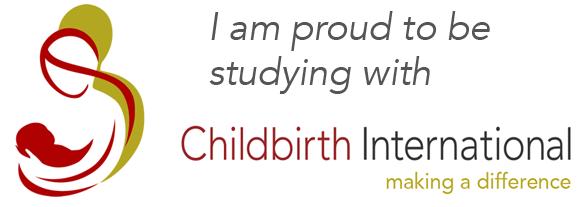I am going to state here for the record that I believe the Bible to be the true infallible word of God. I've been amazed at the wide range of Childbirth material and enthusiasts out there in terms of faith and spirituality (and I feel I've only scratched the surface). I think it is clear to most childbirth enthusiasts that birth is primarily a spiritual event, and only in part a medical event. However each mother (doula, author, educator, midwife, doctor...) interprets the spiritual nature of birth through the "goggles" of her own belief system.
Let me diverge for a moment and express that one thing I love about birth is that it affects every single human being. We've ALL been born, right? And nearly half of us will give birth at least once. The vastness of cultural birthing ideology and methods is an entire field on its own, and I only touch on it now to say that those differences (and similarities) are beautiful and God-given.
Returning now to the Bible, I believe its truth is for all of humankind, just as God created all of humankind, and just as he sent his son Jesus to be the Messiah; to lay down His life that we might have life abundant and eternal. This is NOT to make humankind alike one culture to another, but to unite us under the banner of Christ's love and forgiveness.
One of my dearest books is an out-of-print volume entitled The Joy of Natural Childbirth by Helen Wessel, the Fifth Edition of Natural Childbirth and the Christian Family. If you are a Christian with an interest in Childbirth, whether personal or professional, you would do well to get your hands on this gem! The book is divided into two parts, with the first telling the story of a newlywed couple named John and Mary as they learn about marriage, reproduction, pregnancy and birth. It is a quaint and old-fashioned story, but there is so much well researched information about natural family planning, natural birth, and studies of birth and the Bible. The second half of the book is non-fiction, also rich in Biblical perspective for natural childbirth. This book opened my eyes to the real meanings of the original Greek and Hebrew words in some passages regarding childbirth. (Unfortunately some of the English translations of the Bible have been affected by Western notions of childbirth as a painful curse to be feared.) Here is an excerpt (p. 92)
"Why don't we look at Genesis 3:16 and 17?" John opened his own Bible to this passage, sharing it with Mary. The pastor began reading from the King James Version, pointing out the underlying Hebrew word:
Unto the woman he said, I will greatly multiply thy sorrow (etsev) and thy conception; in sorrow (etsev) thou shall bring forth children.
"Do you notice that the word 'curse' is not used here, and neither is the word 'pain'? But now, let's compare what God says to Eve with what he says to Adam in the following verse:
And unto Adam he said,...cursed is the ground for thy sake; in sorrow (etsev) shalt thou eat of it all the days of thy life."
"The Hebrew words are the same for the man and the woman!" Mary exclaimed.
"Yes, they are. But have you never noticed that the English words, 'sorrow' for Eve and 'sorrow' for Adam are also the same? Notice, too, in the context, that the word 'cursed' is used of the ground and the serpent, but not of Adam or Eve. Look now, in the margin of your Bible, at the alternate translation for 'sorrow' in reference to Adam. What is it?"
"It says 'toil,'" Mary answered, looking over John's arm to read the smaller print. "That means hard work. Why, pastor!" she exclaimed again, "that's exactly what Carolyn told me giving birth is like. She said it's hard work! But why is the word 'toil' not in the margin for the woman too, since the Hebrew word is the same for her as for Adam?"
"There's no good reason, Mary," Mrs. Dirkson commented, "except that the translators are influenced by the attitudes of the cultures they live in."
Pretty amazing, huh? So the next time someone asks you about "The curse of childbirth" - tell them there's no such thing!
Thursday, May 22, 2008
Subscribe to:
Post Comments (Atom)


No comments:
Post a Comment